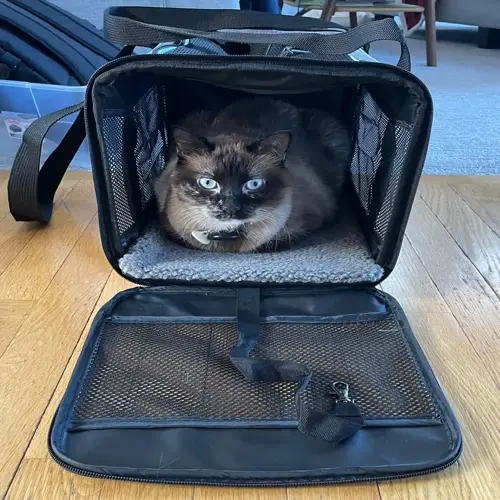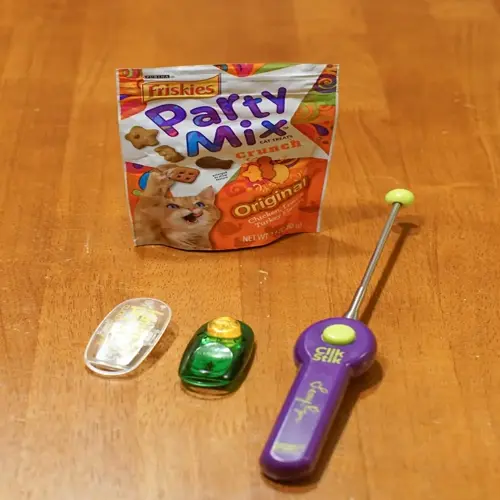How do I introduce puzzle feeders to my cat?

Written by
Victoria Hayes
Reviewed by
Prof. Edward Clarke, Ph.D.Using puzzle feeders the right way prevents frustration and builds your cat's problem-solving abilities. Start with easy designs that yield visible food rewards. I learned that I had to be patient with my at first reluctant cat. A gradual increase in difficulty helps build a positive experience for the cat with these enrichment tools.
Initial Selection
- Choose shallow trays with visible treats
- Avoid complex mechanisms initially
- Use high-value food like freeze-dried chicken
Demonstration Phase
- Show your cat how the puzzle works
- Move treats with your fingers visibly
- Repeat demonstrations twice daily
Difficulty Progression
- Increase complexity after 3-5 days
- Add sliding mechanisms slowly
- Introduce multi-step puzzles last
Troubleshooting
- Revert to easier puzzles if frustrated
- Ensure puzzles match your cat's physical abilities
- Avoid forcing interaction if disinterested
When starting, offer short five-minute sessions. A good time is when the cat is hungry in the morning or before dinner. Demonstrate the mechanism slowly before allowing the cat to attempt it. I always use a special treat that the cat does not receive at any other time, except when working on the puzzle, so that it retains its attractiveness and motivates the cat highly to work for it.
Observe your cat's body language during introductions to ensure a smooth interaction. Ears forward and tail up indicate interest. If your cat turns its head or walks away, it's a sign that your cat is frustrated and needs simpler puzzles. My cat took three tries before he was successful with the rolling ball feeders.
Tailor puzzles to your cat's abilities. Flat puzzles are better for senior cats with limited mobility. Young cats can do three-dimensional puzzles. Switch out the types of puzzles weekly, offering a different kind each week, to keep things interesting. You will develop a range of problems for the cat to solve independently.
The successful introduction of puzzle feeders creates lasting benefits of enrichment. It encourages natural foraging instincts while slowing down the eating process. You can start today with one simple design, and see your cat grow in confidence with every successful feeding experience.
Read the full article: Essential Cat Enrichment Activities Guide

